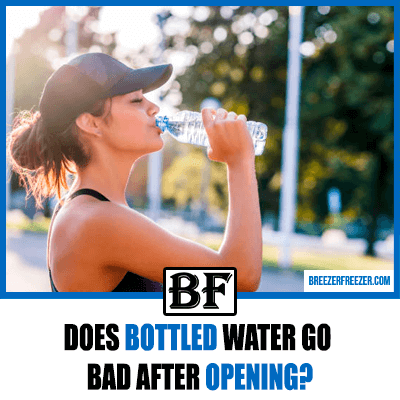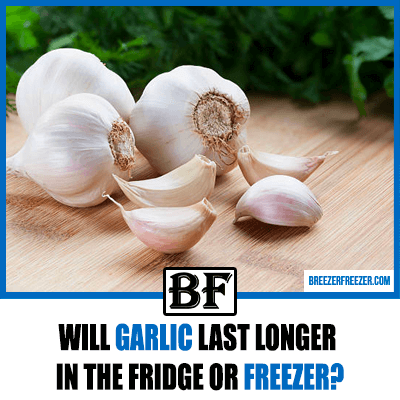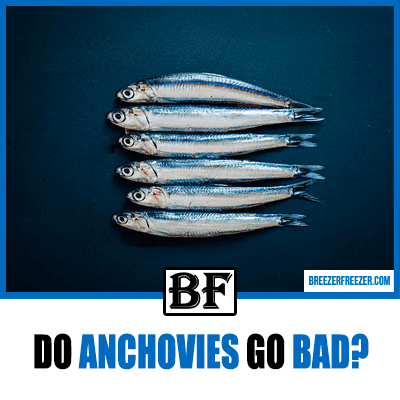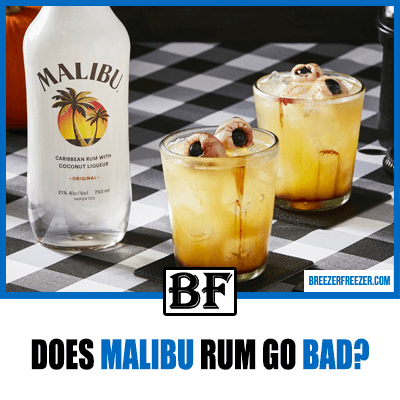Does bottled water go bad after opening?
Bottled water is a convenience that we all take advantage of from time to time. But there has been a lot of controversy around bottled water from its cost, its origins, and the environmental impact that discarded bottled water causes on the planet. But for the average consumer, is there something more sinister to be concerned about bottled water?

Did you know that buying 16.5 fl oz of bottled water equates to spending $7.50 per gallon of water? That’s almost two thousand times more than you pay for the water out of your facet, and you’re complaining about gas prices!
In this article, we look at something more sinister than the cost of bottled water. We will look at how fast the water can go bad after you open it.
Let’s dive in.
Does bottled water expire?

You may have always thought that water does not expire, and to a greater extent, you were right. So why have an expiry date on a bottle of water? Surly water can withstand being bottled. After all, the bottle is sterile, and the water will have come from a clean source, so what the heck could go wrong?
Hold on for a bumpy ride. Water is stable and doesn’t go bad per se, it can quickly become contaminated, but by and large, it lasts a long time.
However, that is the end of the good news. It is not the water that has an expiry date. It’s the bottle it is being sold in. Yes, you read it right the bottle expires and not the water.
But why worry? It is only a product made from hydrocarbons like crude oil and natural gas.
If your water bottle expires, it will start to leach out chemicals into your water that are pretty nasty and have been connected with some of the worst diseases that cause fatalities.
Does bottled water need to be refrigerated?

When you buy bottled water, it is not refrigerated in most cases, especially from the grocery store. Still, chilling water can make the refreshing drink palatable and quench thirst quenching.
But if unopened, there is no requirement to keep bottled water in the fridge. However, once the seal has been cracked and your pursed lips have taken a sip from the bottle, it is best to place the bottle in the fridge with a tightly screwed-on cap.
If you don’t know your saliva contains bacteria, it’s not harmful to you. When you take a mouth full of water from a bottle, inevitably, there is an element of backwash.
Left for hours, the bacteria from your saliva will grow in the bottle, making it a pool of unsavory bacteria for you to drink next time. Placing the water bottle in the fridge will slow the process.
How long can bottled water sit out?
The shelf life of a plastic water bottle is approximately two years before its starts to leach chemicals into your bottled drinking water.
Water bottles within the expiration date can sit out in a cool environment out of sunlight for up to two years.
Once you have taken a drink from the water bottle, it’s advisable to refrigerate and drink the weather within 24 hours.
Does unopened water go bad?

No. Water is a stable product and can be stored and sealed for a long time, but the bottle, on the other hand, does go bad and starts to leach out chemicals. (leaching is the breakdown of chemicals from the bottles). The chemicals are polycarbonate, styrenes, and the like, all harmful to humans.
How long does water last in the fridge?
Unopened, it could last two years. Open it will last for a couple of days max. It should be consumed within 24 hours if you have been drinking directly from the bottle.
Open water in the fridge can be tainted, but the contents of the fridge, such as cucumber and fish odor, will dissolve in the water, so sealing the bottle tightly is imperative after it’s been opened.
Does frozen water go bad?
No. For a long time, this topic has been a hot potato with what seemed to be credible evidence that there was a connection between frozen plastic bottles leaching out dioxins in drinking water that could cause cancer.
The theory has been debunked, but for some of you, there is no smoke without fire, and the debate rages on.
Freezing water does not make it bad as far as we know it today, but why freeze water? It will not extend the shelf life and only take up valuable space in the freezer.
Does the sun affect bottled water?
Again another controversial subject regarding the levels of leaching from plastic water bottles if left in direct sunlight. UV rays do damage plastic over time, and it makes it discolor and brittle, but how about water bottles?
It was recorded in 2014 that leaving water bottles in sunlight increased leaching levels. Still, the water stabilized, and the levels never reached a point where the water was considered contaminated and not fit for consumption.
Today it is thought that limited exposure to sunlight and temperature does not affect bottled water. Still, persistent sunlight for five days will cause an increased level of antimony (metal), according to national geographic.
Does distilled water go bad?
Unopened distilled water can last a lifetime, there are no limits on how long it can be stored, and it’s completely inert.
But if you drink distilled water, you may think it has gone bad, and there is nothing in it except H2O.
The unimportant minerals such as calcium and magnesium have been stripped from the water, making it taste somewhat strange and bland, which is an odd way to describe water.
Drinking distilled water can have adverse health effects and should be avoided.
Final thoughts
Did you know the FDA does not mandate expiry dates for bottled water? Bottled water has always been a contentious issue, and sometime in the future, another revelation will surface and shock you to the core.
It’s essential to keep hydrated, and if bottled water is convenient, so be it. Better to drink water and be safe.





